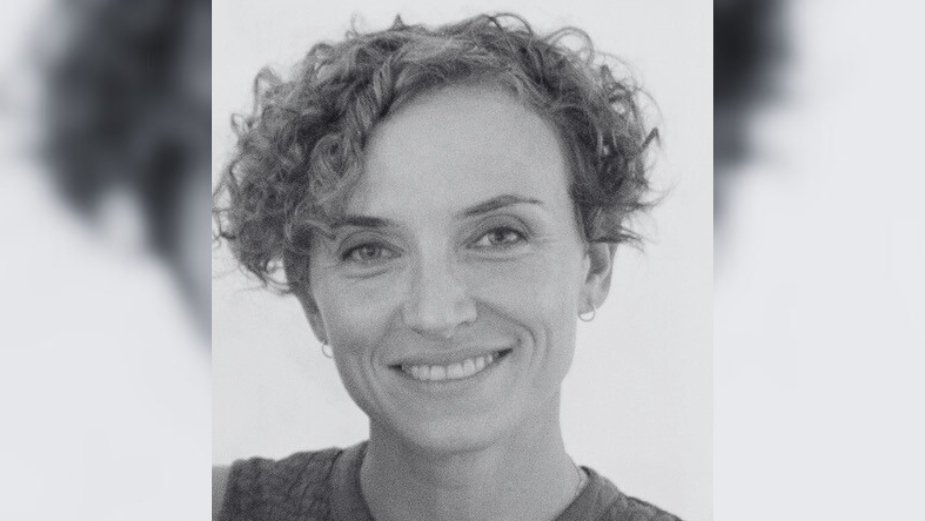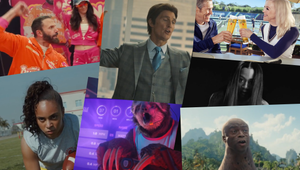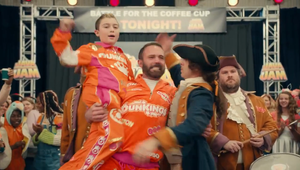
Jean Scofield: “Music Functions on a Deeply Emotional Level”

If there’s something that Jean Scofield doesn’t know about music in advertising, it’s probably not worth knowing. Over the course of her career to date, Jean has turned her hand to original song production, top-line ad campaigns, partnerships between brands and artists, remixes, licensing, live performances, and even VR experiences amongst so much more.
But perhaps that shouldn’t come as a surprise. After all, music runs in Jean’s blood - growing up with a musician father and a manager/producer mother, Mophonics’ partner and EP has an instinctive feel not just for the craft of music, but its relationship with commerce. It also means that Jean understands how brands can and should sound on a remarkably intuitive level.
It all adds to the rich understanding and passion for music that runs through Mophonics’ DNA. To find out more about her approach to music and why, in her own words, ‘so many opportunities are missed’ when it comes to music in ads, LBB spoke with Jean…
LBB> Jean, let's start by winding the clock back. I've read that you grew up within a musical family - what kind of role did music play in your childhood, and at what point did you know that it would be your career?
Jean> My personal roots are bound to music. Music was not a hobby or an extracurricular activity but a primary presence in my home, as a business but also a means of communication and creativity. My brother and I were encouraged to sing, play instruments, perform, and listen to music in every style. So in essence, I have been a serious lifelong student of music in every regard.
My upbringing positioned me well to understand how music is a medium accessible to people in a pure and honest way. Being present for my father’s journey as an artist and my mother’s stewardship of his career as his manager, I never questioned that a serious career in music could be possible.
LBB> Over the course of your career, it's hard to think of an aspect of the music world which you haven't touched. Is there anything about our current era of music - in the commercial world or even beyond - which still gets you excited?
Jean> It all still gets me excited. Our studios honestly feel like Santa’s workshop sometimes; our composers and producers are whipping up magic everyday which produces a thrill.
Appreciating how creativity and industry can coexist in a meaningful and effective way, and how you can nurture and grow a belief system and associations with a brand through thoughtfully considered audio, is exciting. Riffing with producers until they craft that perfect drum sound to deliver an old-meets-new sound, or finding a singer to bring an instrumental to life…that is also exciting! I feel so fortunate to be part of processes and outcomes like these on a regular basis.
LBB> Since you joined Mophonics in 2018 as ECD, is there a campaign (or project) you've been involved with which stands out as especially memorable or significant? If so, why?
Jean> I take pride and find significance in every project in one way or another. That said, there are two projects that come to mind. One was just prior to joining Mophonics, when I was EP of music at mcgarrybowen, and their client United was the official airline of the US Olympic Athletes. We were tasked with reimagining Gershwin’s “Rhapsody in Blue'' as a superhero theme, and everyone wanted to go big. Mophonics drafted in Brian Tyler, a superhero composer with massive film credentials (Iron Man, Avengers, etc) and cultural heft, and they delivered a stunning, Marvel-tastic interpolation of Rhapsody, performed by an 80 piece orchestra.
The team navigated the crazy twists and turns of the job with such a steady hand. Their passion and technical savvy shone through, and that really left quite a deep impression. Deep enough that, within a year, I was one of them!
Above: US Olympians were given superhero treatment in this playful United Airlines ad from 2018.
The other notable job was when Lincoln hosted a songwriting competition to launch a new model, the Corsair. The winner would take home a new Corsair and be featured in a road trip campaign through several key musical cities. They also set out to shoot a documentary about it all. Cue Mophonics – we were brought in to deliver artists around the country for their winner to meet with and offer filmed mentorship during this one-in a lifetime road trip. We found inspirational musicians ingrained in the unique musical culture of each city (e.g. Jon Cleary and Cha Wa in New Orleans and Ruthie Foster in Austin), and scouted historically significant locations to anchor unscripted conversations.
Hudson Rouge and Lincoln put their trust in our music and cultural literacy. We were delighted to partner on such a unique and music centric initiative from end to end, providing on-site supervision for several of the shoots too - it was a unique way for a brand to sponsor an earnest celebration of creativity and music. This doc also meant showcasing more great talent and musicianship in the process, which was a resounding motivator for us to be involved in as well.
Above: Jean and Mophonics provided the soundtrack for an ambitious musical experiment which took Lincoln's Corsair across the US.
LBB> Would you say that Mophonics has an overriding 'philosophy' as a studio, and how would you describe it if so?
Jean> We have always sought to find and nurture songwriters and producers - in our 20 years as a creative studio for music, we’ve fostered a dynamic team of core-Mopho talent and an extended artist roster that includes folks who started in our studios and have gone on to become Grammy Award winning hitmakers and bandleaders. This bedrock positions us uniquely to really nail robust song production - whether we’re brought in to craft an original lyrical song or re-imagine a song through a cover, I’m consistently excited by how our artists deliver.
We’re always trying to be inspired and creatively curious enough to get to an elevated and vibrant outcome that could never be solved with library music. Over time, that also means we’ve amassed a wholly unique archive of Mopho-tracks that will always sound distinctive, because they were made with an artist's sensibility and have a point of view. People identify deeply and personally with music, and that emotional bonding can translate to a positive connection with a brand or product. That's something we understand at Mophonics. We link emotions and responses to the content we help elevate through music, always striving to keep the ‘art’ in the craft.
LBB> Is there anything you'd change about how music works in the commercial world today - if so, what would it be and why?
Jean> There are so often missed opportunities to leverage music’s full potential for activation. For example, if you are writing a lyrical song for a spot, there’s tremendous potential for that song to be made into a full-length version and be digitally distributed across music platforms.
Deals like this could be pretty straightforward, and the costs to produce a longer version are far less than one might think. When negotiating clearance for a band/artist song in a commercial, there are opportunities in the negotiation phase to broker more meaningful connections than most take advantage of things like social media posts, tour sponsorship, private performances, or meet and greets. All of these initiatives could forge a broader and stronger linkage between music and branding. It takes a different level of pre-planning, and the whole agency and/or client team needs to be passionate enough to up-sell and engage. It rarely happens.
LBB> What do you think has changed most about how the industry works with music in the time since your career began?
Jean> Without sounding like a dinosaur, technology has affected everything; how music is acquired, shared, heard, and made. When I began in this business, labels and publishers would send copious amounts of CDs to familiarise supervisors like me with their artists. Some bigger entities would send physical hard drives loaded up with thousands of mp3s. I’d make custom playlists on physical discs from a CD burner in my cubicle (about the size of my toaster) to share with creatives. It was a messy and lively process. Original music demos were also literally ‘demos’, a simplistic rendition of an idea to be illustrative of a bigger idea that could be made with a commitment and additional resources. It required more imagination and decision-making at the onset.
Thanks to all the streaming platforms there’s more listenership than ever, and it can be done with little effort because it commands less of a time or financial commitment. The result is that people listen to more music but perhaps end up with less music they’re truly committed to or passionate about (aka fewer “desert island artists”). They have almost anything they could want to hear at their fingertips without making much investment in any one artist.
Perhaps because of the way streaming platforms work, we all enjoy music in a more fickle and transient way. But we can use this to our advantage: faced with the threat of a client or a creative partner saying “I’ll know it when I hear it”, our goal at Mophonics is to acknowledge that awesome discoveries are possible as a project evolves, and to help facilitate inspiring and anchoring conversations to guide them toward the creative goal.
LBB> And, on the flip side of that, is there anything which has stayed the same?
Jean> Music will always function on an emotional level. Emotions are highly personal and subjective, and sometimes truly effective music with a pragmatic strategic goal (otherwise known as branded content) doesn’t align with the personal tastes of decision-makers. There is no amount of time or technology that will change how decision makers will (often) champion music they personally like over ideas that could move the needle for a target audience.
LBB> Finally, if you could go back in time and offer your past self-one piece of advice at the outset of your career, what would it be and why?
Jean> In an industry that feeds off collaboration, talking doesn’t always equate to contributing. Rather, listening is an active state and critical to group effort. If I could go back in time, I would have told myself to be a better listener in the beginning.















